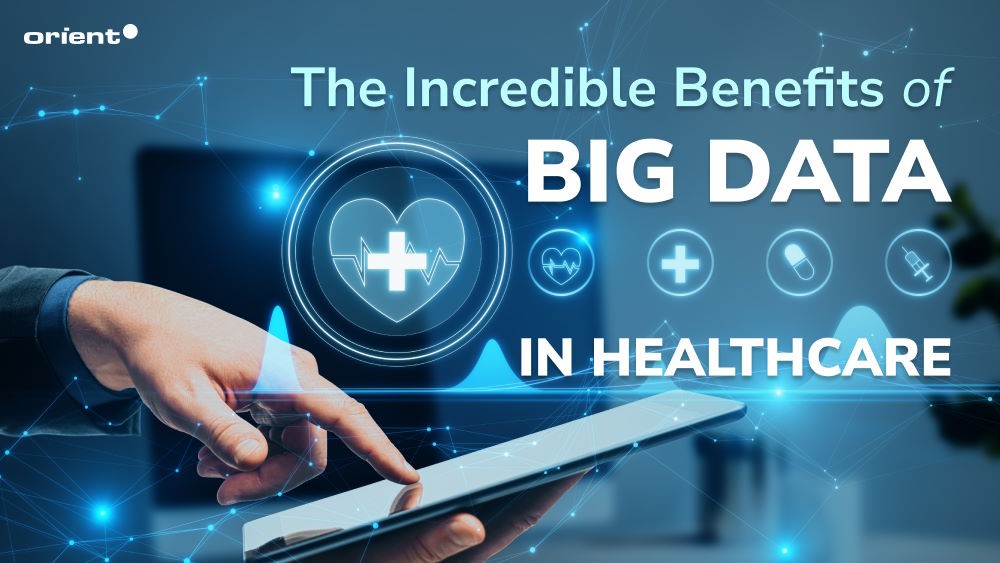The healthcare and medicine sectors, long defined by traditional practices and individualized patient care, are currently undergoing a profound transformation driven by an unlikely, yet powerful, force: big data. This isn’t merely about collecting more patient records or storing larger files; it represents a paradigm shift in how medical knowledge is generated, diseases are understood, treatments are administered, and public health is managed. Big data, characterized by its immense volume, velocity, and variety, is no longer a futuristic concept in healthcare; it is an active, indispensable catalyst, reshaping everything from personalized medicine and drug discovery to operational efficiencies and preventative care on a global scale. Its role extends far beyond a simple analytical tool; it is becoming the very nervous system of a more intelligent, responsive, and ultimately more effective healthcare ecosystem.
One of the most revolutionary contributions of big data in healthcare lies in its capacity to foster a truly personalized medicine approach. Traditionally, medical treatments have often followed a “one-size-fits-all” model, where standard protocols are applied to broad patient populations. However, big data allows for a granular understanding of individual patient profiles. By integrating vast datasets from electronic health records (EHRs), genomic sequencing, wearable devices, lifestyle choices, and environmental factors, physicians can gain unprecedented insights into a patient’s unique biological makeup and health trajectory. For example, analyzing a patient’s genetic data alongside their medical history and response to previous treatments can help predict their susceptibility to certain diseases, identify optimal drug dosages, and even anticipate adverse reactions. This level of personalized insight enables clinicians to tailor treatment plans with far greater precision, leading to more effective outcomes and minimizing unnecessary interventions. It’s a shift from reactive, generalized care to proactive, highly individualized strategies that recognize the unique complexity of each human body.
Beyond individual patient care, big data is accelerating medical research and drug discovery at an unprecedented pace. The process of bringing a new drug to market is notoriously time-consuming and expensive, often taking over a decade and billions of dollars. Big data analytics can drastically reduce this timeline and cost. Researchers can sift through enormous volumes of biomedical data, including clinical trial results, molecular structures, protein interactions, and patient outcomes, to identify potential drug targets, predict drug efficacy, and even repurpose existing drugs for new conditions. Machine learning algorithms, powered by big data, can analyze complex biological pathways to identify patterns that human researchers might miss, leading to the identification of novel therapeutic compounds. This capability not only speeds up the development of life-saving medications but also makes the entire process more efficient and less prone to costly failures.
Furthermore, big data plays a critical role in enhancing public health and preventative care. By analyzing population-level health data, epidemiologists and public health officials can identify disease outbreaks faster, track their spread in real-time, and predict future trends. For instance, aggregating data from social media, search engine queries, and hospital admissions can provide early warnings of influenza epidemics or other infectious diseases, allowing public health bodies to deploy resources more effectively, launch targeted vaccination campaigns, and implement containment strategies much sooner. This proactive approach to public health surveillance, powered by big data, shifts the focus from merely reacting to health crises to actively preventing and mitigating their impact, saving countless lives and reducing the strain on healthcare systems.
The operational efficiency of healthcare organizations themselves is also profoundly impacted by big data. Hospitals and clinics generate vast amounts of administrative, financial, and logistical data. Analyzing this data can reveal inefficiencies in patient flow, resource allocation, and supply chain management. For example, big data analytics can optimize appointment scheduling to reduce patient wait times, predict staffing needs based on historical patient volumes, and even identify redundant processes that drive up costs. By streamlining operations and improving resource utilization, big data helps healthcare providers deliver higher quality care more cost-effectively, making healthcare more accessible and sustainable in the long run.
However, the immense potential of big data in healthcare also comes with significant challenges, primarily revolving around data privacy, security, and interoperability. The sheer volume and sensitivity of health data necessitate robust cybersecurity measures and strict adherence to privacy regulations. Ensuring that patient information is anonymized, secured against breaches, and used ethically is paramount. Moreover, the lack of standardized data formats and fragmented data systems across different healthcare providers often hinder the seamless exchange and aggregation of information. Overcoming these challenges requires significant investment in secure data infrastructure, common data standards, and robust regulatory frameworks that balance innovation with patient protection.
In conclusion, big data is not just an ancillary technology in healthcare; it is rapidly becoming its central nervous system, driving transformative changes across every facet of the industry. From empowering personalized medicine and accelerating drug discovery to enhancing public health surveillance and optimizing operational efficiencies, its influence is undeniable. While the ethical and logistical hurdles are substantial, the imperative to harness big data’s full potential for improving human health is clear. As technology continues to advance and data integration capabilities mature, big data will undoubtedly continue to refine and revolutionize how we understand, deliver, and experience healthcare, ultimately leading to a healthier,




